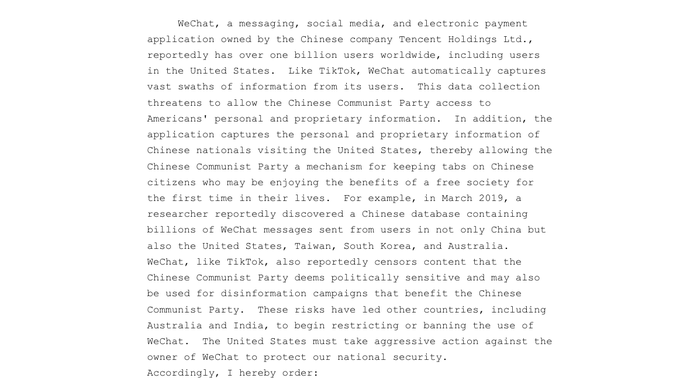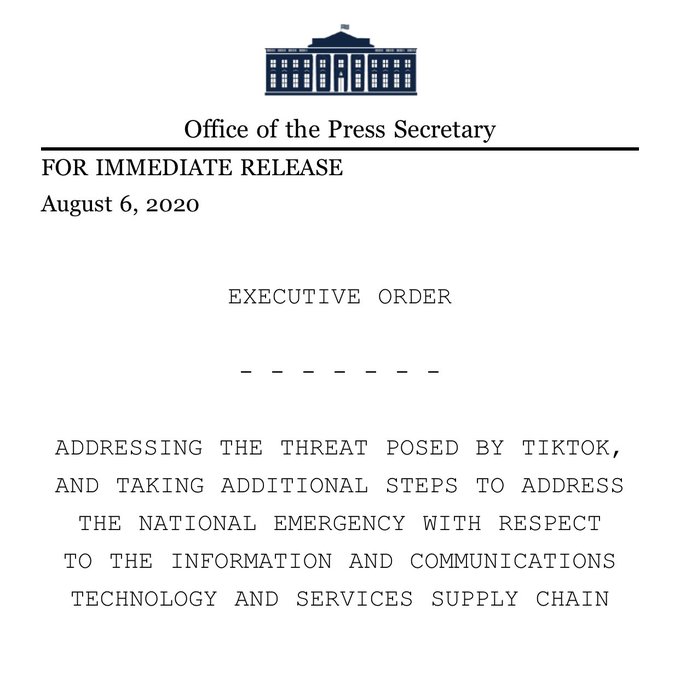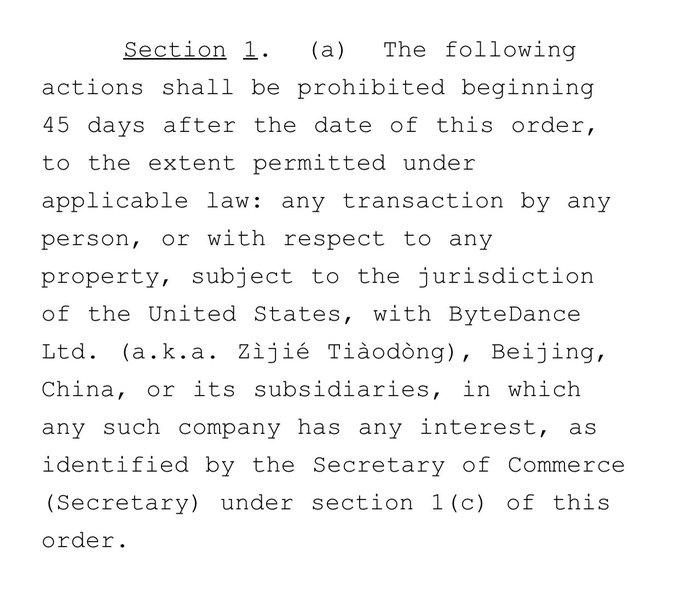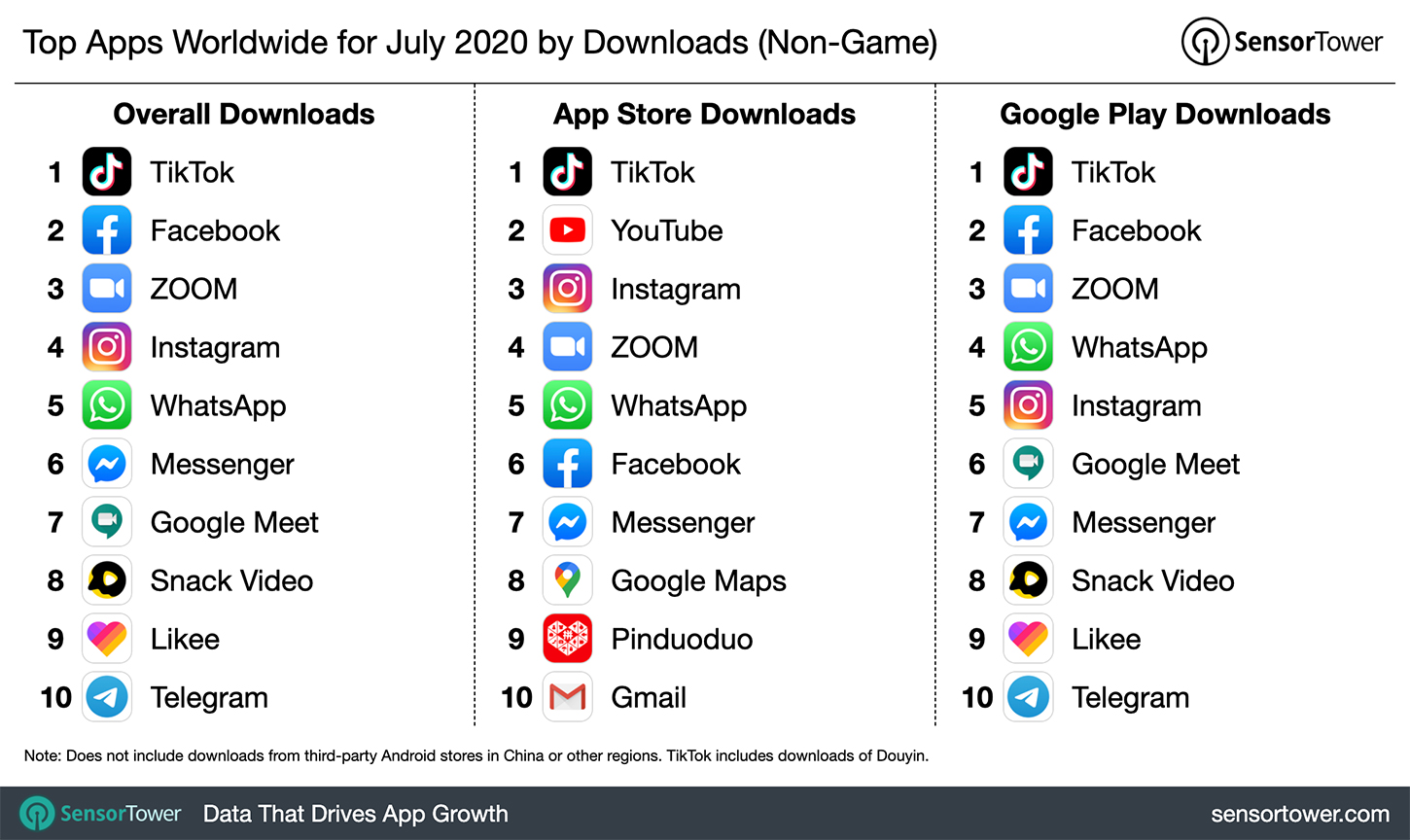US President Donald Trump has issued a series of executive orders addressing what he dubbed a technological national emergency, barring all transactions with the Chinese owners of social media apps TikTok and WeChat after 45 days.





According to an exclusive report in the Wall Street Journal on August 13, a number of U.S. companies with Chinese operations have resisted the Trump administration’s WeChat ban and stressed that it could weaken their competitiveness in the world’s second-largest economy. Apple, Ford, Walmart, Walt Disney, Procter & Gamble, Intel, MetLife Insurance, Goldman Sachs, Morgan Stanley, UPS More than a dozen major U.S. multinationals, including Express, Merck and Cargill, held a conference call with White House officials to express their concerns about Trump’s executive order. One of the purposes of the conference call, according to sources, is to clarify the specific meaning of Trump’s executive order. The order will prohibit Americans from carrying out “any transaction related to WeChat,” but leave it to the U.S. Department of Commerce to explain in detail what transactions will be prohibited.
And Craig Allen, president of the US-China Business Council, warned: “Those who don’t live in China don’t understand the impact of not allowing US companies to use WeChat. They will be at a huge disadvantage compared to all their competitors.” The report notes that WeChat has more than 1.2 billion global users and is ubiquitous in Chinese life and work. For any business doing business with China, WeChat is an important marketing venue for communicating with customers. The U.S. companies are hoping that the Trump administration will be able to narrow the scope of the “strike” when it implements the order in the future. It’s worth noting that on the 12th of December, Tencent CFO Luo Shuo Han 罗硕瀚 said that the company believes that the US ban only applies to WeChat’s international version, and not to the domestic Chinese market. They are seeking further explanation from the US authorities. But US companies are still concerned that the Trump administration’s approach could effectively prevent them from entering the lucrative Chinese market, for example by no longer being able to collect payments or advertise on WeChat. And some U.S. media are already worried about iPhone sales in China.
On the other hand, the U.S. entertainment and sports industries are also worried that digital services related to Tencent will be affected. For example, the U.S. professional basketball league (NBA) has reached an agreement with Tencent, authorizing the latter to broadcast games in China. The NBA “is waiting for further explanation of the executive order.
The Wall Street Journal argues that large U.S. corporations are often Beijing’s strongest supporters in Washington, but their influence has waned since Trump took office. Factor in the political climate under the US election and things become even more difficult. According to Scott Kennedy, a China trade expert at the Center for Strategic and International Studies, “Businesses are worried about upsetting Washington or Beijing and want to stay out of the ‘crossfire’ between the two sides as much as possible.” And in what can easily be seen as a “defense of China,” it is difficult for these companies to stand up and say “the United States is wrong, China is right.
On the other hand, the Trump administration’s daily provocations have greatly affected the business environment. The U.S. media quoted a survey released by the U.S.-China Business Council on the 11th, in which 86 percent of its more than 100 member companies reported that tensions between the U.S. and China have affected their sales and business in China.
At the same time, the survey, conducted in May and June, showed that 83 percent of its corporate members ranked China as a top goal or one of their top five priorities in their global strategy. Nearly 70 percent of respondents were optimistic about the business outlook for China over the next five years, and 87 percent revealed they have no plans to move production out of the country.
”U.S.-China trade and investment provides about 2.6 million jobs in the United States. In the coming years, we’ll have to maintain and add jobs while finding ways to reduce conflict between the two sides in other areas,” The president of the U.S.-China Trade National Council said.
8-14-20 According to market research firm Sensor Tower, more and more users in the United States are opting to download WeChat and its encrypted alternative, Signal, after President Trump threatened to ban it. U.S. WeChat users are hoping to get it installed properly before the software is removed from major app stores. Others want to use alternative services, including Signal, an encrypted chat software developed by the nonprofit Signal Foundation. According to Sensor Tower, WeChat’s average number of downloads in the U.S. in the last six days was 41 percent higher than the week before the ban was announced last Thursday, while Signal’s downloads in the U.S. and China grew by 30 percent and 90 percent, respectively. Some U.S. users say they plan to use WeChat in the U.S. using a virtual commutation network (VPN).
WeChat is not just a texting platform, it is also a payment system for the Chinese users, bypassing the US financial system.
9-19-20 The Commerce Department said Friday that as of Sunday, any moves to distribute or maintain TikTok on app stores such as Apple Store and Google Play will be prohibited, and a more extensive ban against the app would be applied from Nov. 12. Business insiders said that, under Friday’s decision, TikTok’s users who had already downloaded the app may continue using it, but they will not be able to download updated versions from Sunday. According to the company, as of June, the total number of TikTok’s monthly active users in the country soared to 91,937,040, and based on quarterly usage, 100 million Americans used the app.
9-19-20 TikTok on Saturday confirmed that it has reached a proposed deal with US companies Oracle and Walmart. “We are pleased that the proposal by Tiktok, Oracle, and Walmart will resolve the security concerns of the U.S. administration and settle the question around TikTok’s future in the US,” the company said in a statement. Oracle will become TikTok’s technology provider and it’s also working with Walmart on a commercial partnership, the statement said. Shortly after TikTok confirmed the deal, the US Department of Commerce announced an order to delay TikTok’s US app store ban by a week until September 27. The order said the decision was taken “in light of recent positive developments,” and at US President Donald Trump’s direction the ban will be postponed until 11:59 p.m September 27. Trump on Saturday told reporters at the White House he backs the deal with TikTok owner ByteDance, Oracle and Walmart. “I have given the deal my blessing,” Trump said. “I approve the deal in concept.”
9-20-20 A U.S. judge early Sunday blocked the Commerce Department from requiring Apple and Alphabet’s Google to remove Chinese-owned messaging app WeChat for downloads by late Sunday.
9-29-20 Trump’s ban on Tiktok is temporarily blocked by a US federal judge.

